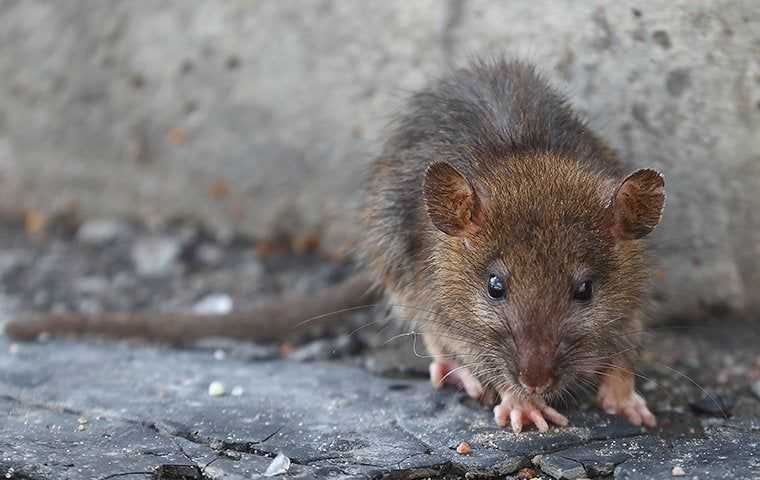The world is filled with rodents. Some experts estimate that as many as 40 percent of all mammals on the planet are rodents. Good thing only a handful of rodent species are pests, and an even smaller number invade our homes. Today, we will look at four rodent species that find their way indoors and offer some smart tips to help you keep them out. If you already have rodents in your home and you're hearing them bumping and scratching in your walls, remember that Westfall's Lawn and Pest is here to offer guidance and assistance. We provide industry-leading pest control in Sarasota and we know what is needed to remove rodents from the structures on your property. Navigate to our contact page to connect with us. With that said, let's look at common rodents in Sarasota, what they do on your property, and how to keep them from invading your home (if they haven't already).
Signs Of Infestation: How To Identify Rodent Activity

The four rodent species in Sarasota you can expect to have trouble with in structures are house mice, deer mice, Norway rats, and roof rats. House mice are the worst of the four. They do exceptionally well indoors and can live on tiny scraps. Deer mice are the opposite. They don't prefer to live in your home. You'll more likely find them in your shed, barn, or garage. Norway rats are ground rodents. They can create tunnels right under your feet. But they can also swim in sewers and invade man-made structures. Roof rats prefer to climb trees and dwell in tree holes, so it isn't surprising that they get into attics.
When any of these common rodents enter your home, you may not realize it for a while. They are sneaky critters. Even Norway rats and roof rats, both of which are big rodents, can move about in a home quite stealthily. So it is essential to know how to find signs of an infestation if you hope to catch these pests early and prevent them from causing harm to your health or property. Here are some signs to look for in or around any structures on your property.
- Black droppings. Rodents can't help but leave droppings as they explore. Look for them along your foundation and indoor walls. Rats and mice run along walls to feel their way as they travel. Look for droppings on your attic insulation; attic spaces are common nesting locations for rats and mice. Look for them in the backs of your kitchen drawers, on food shelves, and in the cabinet under your sink. Rodents often get into all of these places.
- Nests. When you go up to your attic to check for droppings, look for nests while you're up there. Rodents gather soft material for their nests. You'll find these soft nests in recesses, gaps, and voids.
- Holes. As rats and mice move about your home, they chew access holes. These holes are often hidden. You may need to look behind objects on the floor in your pantry, underneath the overhang of kitchen cabinets, or behind your stove. You may also find these holes around plumbing, for instance, the pipes that come in underneath your sink. You can tell whether or not you have a current infestation by sealing holes with expanding foam. If a new hole appears, there are rodents nearby.
- Rodents. Obviously, seeing rodents moving about inside your home is the best sign that you have an infestation. Bring a flashlight and inspect your home after dusk for the best chance of seeing rodents in your attic, store rooms, and other secluded spaces.
Consider performing an inspection every six months to keep watch for these warning signs. It is critical to catch rats and mice early because of the dangers they present. Let's look at what rats and mice do to impact your health and damage your property.
Rodent Dangers: Health Risks And Property Damage
When rats or mice get into your home, they accidentally cause property damage and do things that can make you ill. The problem with rodents is that they're wild animals. Here are a few things these wild animals will do in your home.
- The droppings and urine left by rats and mice can make you sick. Deer mouse feces can be a source for Hantavirus. Always take precautions when cleaning up rodent feces.
- The holes created by rodents can allow water into your home and moisture damage can lead to mold problems. If black mold takes root, you could also have health issues.
- Rodents don't just chew holes in building materials, they also gnaw on wires. When a rat or mouse chews through a wire, they'll regret it. But you'll regret it even more if the cut wire sparks and it ignites a fire.
- Rodents move about in landscaping and grass. In these places, they pick up ticks and fleas. When they enter your home, they bring these tiny parasites in with them.
- Rodents explore junk piles, garbage heaps, dumpsters, and trash cans. In unsanitary places, rats and mice can pick up invisible organisms associated with stomach illness, such as Salmonella and E. coli.
Don't take any chances. When you detect rats or mice, send those wild animals packing. Contact a licensed pest management professional in your area for professional rodent control. If you're in Sarasota, contact Westfall's Lawn and Pest for service.
It is hard to remove all the rodents from a structure, which is why we strongly encourage Sarasota residents to get proactive about rodent prevention. We've discussed some of the different kinds of rodents, how to detect rodent activity, and what to do when you find rodents. Now, let's look at what you can do before rodents get into your home.
Rodent Exclusion Tips: Safeguard Your Property from Infestations
The secret to rodent control is understanding how rodents behave. If you know what rodents are looking for, where they hide, and how they're able to get into your home, you can use that knowledge to turn the tables on those pests. Here's how it works:
Mobility: When a rat or mouse comes into your yard, it doesn't just scamper across your grass. These two kinds of rodents have poor eyesight. They have to use their other senses to get around efficiently. They use their sense of smell to detect aromas and they create a map in their minds. They use their acute hearing to detect sound waves that bounce off the objects around them. Most of all, they use their whiskers, body hairs, and bodies to feel their way from one area to another. A yard that is free of clutter is not welcoming to a rat or mouse, so removing unnecessary objects can deter them
Hiding Places: There are many places where rodents hide. They may get underneath a shed; installing a fencing material around the bottom of your shed (inserted a foot into the ground) can keep them out. They hide in stacked wood; placing wood on an elevated platform can deter this. They can hide underneath your deck; once again, fencing is the solution. They can hide in dense vegetation; trimming plants and bushes near your home can make your landscape less inviting.
Food Attractants: Rats and mice eat seeds. Remove bird feeders or make them inaccessible. They eat leftovers in your trash. Keep your trash covered. They eat nuts on the ground. Rake those nuts up. They eat insects. You may reduce insects by keeping exterior lights off.
Common Routes: Rodents climb trees and use branches to get onto rooflines. Chop those branches to keep them off. They scale pipes on the sides of structures. Install guards to block them. They run along power lines and other cables. Guards can help prevent them from getting to your roof from attached wires. They wiggle and climb up through gutter downspouts. A little wire mesh can keep them out.
How Rodents Get In: Rodents squeeze through gaps around plumbing and other utilities. Sealing these gaps with expanding foam can keep them out. They squeeze past exterior door seals. Weatherproofing can deter them by removing small holes that rodents may make larger. They scale some exterior surfaces and may get up to gable vents. Protect your vents with hardware cloth.
These all-natural methods are all you need to stop rodents in their tracks. Rodent management is a systematic and layered strategy. Best of all, many of these tips have a long-lasting impact. Once you've done the hard work, you can rest easy.
Professional Rodent Control: The Safe Way To Remove An Infestation
Sometimes rodents are harder to keep out. Conditions like flooding or construction may drive them into your yard and increase the chance of an indoor infestation, or you may have conditions on our property that are hard to correct. And, of course, it is possible that you don't have the time, resources, or energy to take the necessary steps to prevent rodent infestations as outlined above. Don't worry. When you need rodent control indoors or rodent management around the structures on your property, we have you covered. Contact Westfall's Lawn and Pest for trusted rodent control in Sarasota. Our technicians have the training and experience to get the results you want. Call, email, or text to get connected. We look forward to helping you find an effective solution for your rodent problem.

What Our Customers Are Saying
"Jimmy was a lot of help for me and my family from the very beginning. His professionalism and knowledge is what every homeowner needs. I will definitely recommend this company to all my friends and family."



